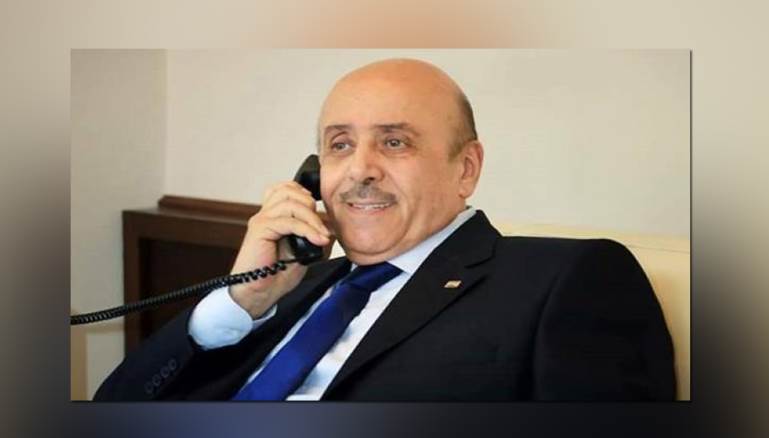The Iranians and Russians are coordinating on military and security changes to the Syrian regime leadership, in what looks like a division of centers of influence between them. This operation has accelerated recently, with entire military units and security agencies going entirely to one of the two allies.
With the Russians imposing their full control over the regime forces chief of staff and the government, and turning the General Intelligence Directorate/State Security Department into a Russian security and intelligence branch in Syria, the Russians have recently engaged in making material changes which have affected regime military and security command positions. The Russians have sent hundreds of officers to be investigated on a variety of charges, from abuse of power to cooperating with “armed terrorists groups” and spying.
An informed judicial source told Al-Modon that special sections had been established in the Adra and Saydnaya prisons for commissioned and non-commissioned officers from the Syrian army and security branches. The source said that these officers and soldiers had been transferred for investigation after being implicated in various matters affecting “national security.”
The Russians did not stop at sending hundreds of officers for investigation, but also carried out various changes in the command of the military barracks, which the Iranians do not control. Additionally, the Russians begun an active plan in 2016 to dissolve regime loyalist militias across Syria or to put them directly under their authority, as occurred with the Palestinian Liwa al-Quds.
As opposed to the routine annual and semi-annual promotions, as had been typically carried out in recent years, the regime command has carried out security and military changes at a number of security agencies. The most important of these decisions was to transfer the commander of the Military Intelligence Directorate, Major General Mohamed Mahala, to retirement, after a previous extension, and then appoint him as a military adviser to the Republican Palace. Al-Modon’s sources predicted that Mahala would have a role in the National Security Agency later this year.
According to Al-Modon’s sources, there has been news in the corridors of the regime that the visit of Iranian Chief of Staff, Mohammad Bagheri, to Damascus from Mar. 17-18, 2019, was to oversee the transferring of Mahala from retirement to security adviser to Bashar al-Assad, so that Iran could keep a pressure card in the Republican Palace.
Major General Kifah Mulham, deputy to Mohamed Mahala, was appointed to replace him as head of the Military Intelligence Directorate. This change to the head of the Military Security Directorate coincided with dozens of changes to the directorate’s branches, some of which the Russians had a role in, and the Iranians the rest.
Sources told Al-Modon that a number of decisions, including the appointment of the head of the National Security Agency, Major General Ali Mamlouk as deputy to the president of the republic, were put on the discussion table over the last few weeks.
The pretexts of the two allies, Russia and Iran, vary in their justification for wanting the changes and carrying out the transfers. The Russians say openly in internal meetings, according to Al-Modon’s sources, that they have to break up the sectarian system of the Syrian army and security agencies, so that security agencies and sensitive centers in the army have sectarian and regional diversity. Unlike the Russians, the Iranians have focused on gaining the keys to allow them to facilitate their military and economic expansion in Syria, primarily through the Alawite sect.
On the ground, the Russians and Iranians are working to have greater penetration into the positions and centers of the Syrian forces, even at one another’s expense. Iran has begun to make changes recently after it felt threatened by the changes Russia was making to impose their control over key state institutions.
The changes have impacted the Air Force Intelligence Directorate, which is still officially headed by Major General Jamil Hassan, despite him having been absent for more than two months as a result of illnesses, which has seen him make three separate trips to Hezbollah’s hospitals in Lebanon.
The changes in the Air Force Intelligence ranks to the Iranians’ benefit have affected dozens of officers in security branches and stations. Transfers between Damascus, Aleppo and coastal branches have occurred, and have affected commissioned and non-commissioned officers in the Damascus central administration, who have been transferred to branches in other provinces. Some of them have been transferred on the pretext of “corruption.”
This article was translated and edited by The Syrian Observer. Responsibility for the information and views set out in this article lies entirely with the author.


